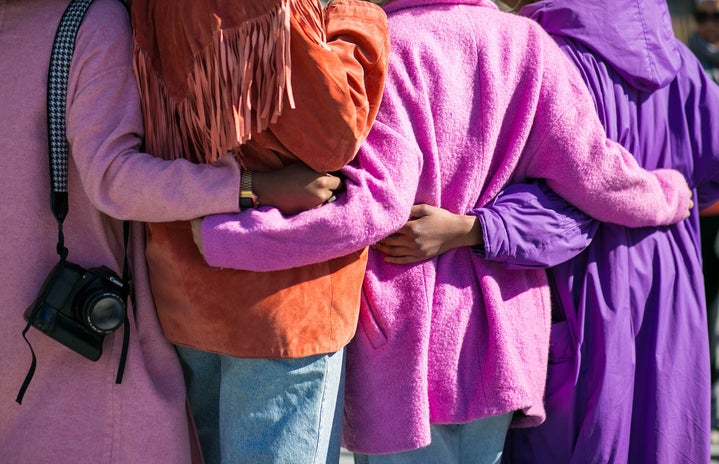While this era may be exciting and nostalgic, it can remind us why we left it in the past
Disclaimer: I recently learned that the word “fat” is more accepted than terms like “plus-sized”. Also, the word “anti-fatness” is preferred over “fatphobia”. That being said, I use a mix of these terms or use them in quotations to be respectful but also aid understanding for readers.
The Y2K aesthetic is officially back. Y2K is defined as the period between 1994 and 2005. The return of Y2K has brought us reboots of beloved childhood tv shows, the reunification of boy bands and the rebrand of celebrities like Lindsey Lohan and Britney Spears. The Y2K era is full of quirky fashion trends such as micro-mini skirts, UGG boots, butterfly clips and Juicy Couture tracksuits. While this era may be exciting and nostalgic for some, it can bring back trends that society left in the past for a reason. The truth is while the Y2K era may be fun to reminisce about, this era was rooted in fatphobia, which was most apparent in the fashion world.
The most fashionable accessory of the early 2000s was a skinny body. Clothes were created to show off a toned midriff and thin legs. This was the era of low-rise jeans, baby tees, tracksuits and visible thongs that were all made for thin bodies. These trends were seen as “hot” for thin girls but were considered “gross and revealing” for girls with other body types. It was a double standard that has been revived with the Y2K trend that reveals the hideous underbelly of fashion: that fat people are often still not accepted into modern trends or considered fashionable.
This was also a period when inclusive sizing did not exist. The movie Mean Girls famously has a clothing store called 1, 3, 5 that only carried clothes in those sizes. While it was just a movie, that was the precedent for clothing in the early 2000s. While inclusive sizing has improved since then, “plus-sized” clothing options are almost nonexistent in both the in-style fast and secondhand fashion. How can “plus-sized” people even try to follow trends if they are not made accessible for them?
These trends were also often modeled by 13-16 years olds which increased sexualization and desire for pubescent girls. The models that were of age were models like Kate Moss and Paris Hilton who bragged about being thin due to cocaine. This was not the average “normal” body type and convinced people it was. This led to a whole generation of disordered eating and increased fatphobia.
I got the opportunity to sit down and chat about this topic with Dr. Katherine Phelps who teaches a class that I am currently taking called Gender & Women Studies 523: Framing Fatness: Gender, Body Size, and Constructing Health. We had a very interesting conversation about the pitfalls of Y2K fashion. She brought up the idea that anti-fatness is associated with anti-blackness. Fatphobia is inherently racist as White women are praised for showing off parts of their bodies and changing their bodies to look like Black bodies which are ostracized for naturally looking like a certain way. For example, this exists in the Y2K era as the end of the early 2000s brought the onset of the Kardashians and their bodies. Their bodies were modeled off of Black bodies and celebrated when they were on a White body, but people still do not accept these features on a Black body. This is just one of the ways that anti-fatness and anti-Blackness are intertwined.
We also talked about how Y2K fashion was created to highlight the body. Clothes were made to show off hip bones and clavicles. They were designed to portray a thin body and were not made to be attractive for fat people. This era also marked the era of the “War on Obesity” and the introduction of social media, both of which are still occurring. This started an area where fatphobia was publicized and openly accepted. Luckily, Dr. Kate reassures that although the Y2K era was extremely fatphobic, she is confident that society has progressed enough to avoid the dangers of that era returning in the Y2K renaissance. While fatphobia may linger or increase, it is highly unlikely to return to Y2K era levels.
Fatphobia in any form is still incredibly dangerous. It negatively affects all aspects of life, including self-esteem, risk of disordered eating, stress levels, systemic discrimination, etc. While we may welcome back the Y2K fashion renaissance, we must do it cautiously to avoid bringing along the fatphobia that invented it.


